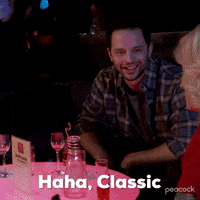I had a terrible nightmare the other night, that I couldn't seem to wake up from. I was watching this movie, and it kept going in surreal, nonsensical directions. It was called "The Green Knight"
I knew I was dreaming because it looked like a 20 million dollar movie, but literally nothing about it made any sense whatsoever. Not the characters, not the order of the scenes, not the directing, not the plotline, other than the ?protagonist? I couldn't seem to keep track of who the characters were. I watched the entire film, and at the end I feel like I knew less about the movie than when I began.
Did anyone else see this thing? Did I imagine it? And if someone else did see it, can you tell me what the hell is going on? People write scripts for 20 years and keep getting rejected, how did this movie get made?
Why did any of the characters do any of the things they did? Was there a hidden message? Was this a philosophical allegory about the nature of life?
Deeply confused and unsettled by this film. lol.
I knew I was dreaming because it looked like a 20 million dollar movie, but literally nothing about it made any sense whatsoever. Not the characters, not the order of the scenes, not the directing, not the plotline, other than the ?protagonist? I couldn't seem to keep track of who the characters were. I watched the entire film, and at the end I feel like I knew less about the movie than when I began.
Did anyone else see this thing? Did I imagine it? And if someone else did see it, can you tell me what the hell is going on? People write scripts for 20 years and keep getting rejected, how did this movie get made?
Why did any of the characters do any of the things they did? Was there a hidden message? Was this a philosophical allegory about the nature of life?
Deeply confused and unsettled by this film. lol.




